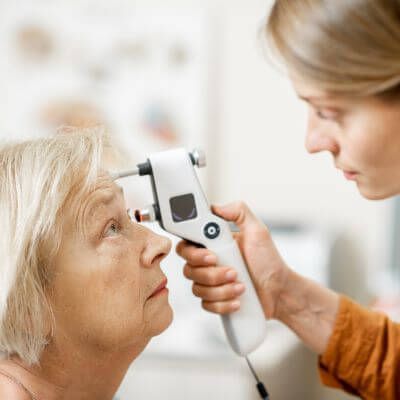Can I Use My Medical Insurance for Ophthalmological Care?
Managing your eye health can be a complex task, especially when it comes to understanding the role your medical insurance plays. Having the right knowledge and resources helps make the most of your coverage. In this blog, we demystify medical insurance for eye-related treatments, ensuring that you’re informed to make decisions about your visual well-being.
Yes, medical insurance usually covers your ophthalmological care, which enhances your vision and monitors your health. Be sure to verify your insurance coverage before appointments to avoid surprises. Prior authorization and referrals are crucial for specialized care, varying by provider. Stay in contact with your primary care provider and Baptist Eye Surgeons ophthalmologist for individualized treatment.
What is Ophthalmological Care?
Ophthalmological care is the specialized medical focus on the health and well-being of the eyes. It encompasses a spectrum of services dedicated to preserving and enhancing vision. This includes comprehensive eye examinations that assess:
- Visual acuity
- Eye diseases
- Overall health
Comprehensive eye exams are of the utmost importance for maintaining overall health. They’re crucial for the early detection of conditions like glaucoma , cataracts , and macular degeneration . Identifying these issues early allows for timely intervention, potentially preventing complications and safeguarding your overall well-being.
In addition to comprehensive exams, ophthalmological care encompasses eye surgery . To address various eye conditions and improve visual function, ophthalmologists perform procedures such as:
Treatments for conditions like diabetic retinopathy and eye infections are also integral components of this care.
Prioritizing ophthalmological care isn’t limited to preserving vision. It also plays a crucial role in monitoring overall health and detecting systemic conditions in their early stages. This, in turn, significantly contributes to your overall well-being and quality of life.
Medical Insurance vs. Vision Insurance
Medical insurance and vision insurance serve distinct purposes in healthcare coverage. Vision insurance is a specialized policy designed to address routine eye care and related expenses.
This includes services like:
- Routine eye exams
- Prescription eyeglasses
- Contact lenses
Discounts on procedures like LASIK surgery may also be included, but its primary focus is on maintaining good eyesight and addressing common vision issues. What coverage and discounts your coverage includes depends on your insurance provider and specific plan.
Medical insurance covers a broader range of healthcare needs, including injuries, illnesses, surgeries, and preventive care for various parts of the body. This can extend to treatment for eye conditions unrelated to routine vision correction such as cataracts and glaucoma.
Specific ophthalmological services, particularly those involving the diagnosis and treatment of medical eye conditions, are typically covered by medical insurance. This includes visits to ophthalmologists for eye issues like:
- Diseases
- Injuries
- Surgeries
In general, ophthalmological treatment for eye issues goes beyond routine vision care. This is one of the reasons why specialized tests, treatments, and procedures related to eye health fall under medical insurance.
Check Your Insurance Before Scheduling An Appointment
 Checking your medical insurance policy before scheduling an appointment with an ophthalmologist is crucial. It helps you avoid unexpected out-of-pocket expenses. Ophthalmological services can range from eye exams to specialized treatments. Knowing what your policy covers ensures you won’t be caught off guard by any unexpected costs.
Checking your medical insurance policy before scheduling an appointment with an ophthalmologist is crucial. It helps you avoid unexpected out-of-pocket expenses. Ophthalmological services can range from eye exams to specialized treatments. Knowing what your policy covers ensures you won’t be caught off guard by any unexpected costs.
To check your insurance policy, start by reviewing your plan documents. These can be found on your insurer’s website or by contacting their customer service. Look for sections related to:
- Eye care
- Vision services
- Ophthalmology
Pay attention to terms like “routine eye exams,” “specialized treatments,” and any associated copayments or deductibles.
You can navigate insurance documents effectively by reading them thoroughly and taking note of key terms and phrases. Look for any exclusions or limitations related to ophthalmological services. Additionally, familiarize yourself with any pre-authorization requirements or referrals needed for certain procedures.
Checking your medical insurance policy before seeing an ophthalmologist ensures you have a clear understanding of what services are covered and what costs you may be responsible for. This proactive approach empowers you to make informed decisions about your eye care and financial well-being.
Prior Authorization and Referrals for Ophthalmological Care
There’s a structured process for gaining access to specialized ophthalmological care.
To access specialized ophthalmological care, it’s crucial to follow a structured process for obtaining prior authorization and referrals. First, arrange an appointment with an ophthalmologist for an initial evaluation of your condition. During this visit, your ophthalmologist will assess the necessity of any specialized procedures or treatments.
Following this, contact your health insurance provider to verify coverage details and inquire about procedures that may require prior authorization. Your ophthalmologist will provide the necessary documentation. This includes a diagnosis, treatment plan, and any supporting documents, to initiate the prior authorization request process.
This request is then submitted to your insurance company, either electronically or via fax. The insurance company will conduct a review to determine if the procedure aligns with their criteria for medical necessity. This process may take several days to a few weeks.
Similarly, referrals from primary care physicians are instrumental in gaining access to specialized ophthalmological care. Schedule an appointment with your primary care physician (PCP) if you experience vision issues. They will evaluate your condition and, if necessary, issue a referral to an ophthalmologist. This will include information about the specialist and the reason for the referral.
With the referral in hand, contact the ophthalmologist’s office to arrange an appointment, ensuring to provide them with the referral information. Following your visit with the ophthalmologist, it’s imperative to follow up with your PCP to discuss any recommended treatments or further steps in your care plan.
It’s important to note that the specific procedures and requirements may vary depending on your insurance provider and healthcare facility. Staying in close communication with both your PCP and ophthalmologist is key to receiving the specialized care you need.
Do you need eye care in Knoxville that’s covered by medical insurance? Contact us today to schedule an appointment!
Ophthalmological care protects your vision and overall health. It’s covered by medical insurance. Verify insurance coverage before appointments to avoid unforeseen expenses. Prior authorization and referrals are crucial for specialized care, with procedures varying by provider. Keep in touch with your primary care provider and ophthalmologist for tailored treatment.
Baptist Eye Surgeons is an ophthalmological practice in Knoxville, TN, and Morristown, TN. Give us a call at 865-579-3920 for more information or to schedule an appointment .


MORRISTOWN
SEVIERVILLE
TENNESSEE VALLEY - LASER CENTER
TENNESSEE VALLEY - EYE CENTER



